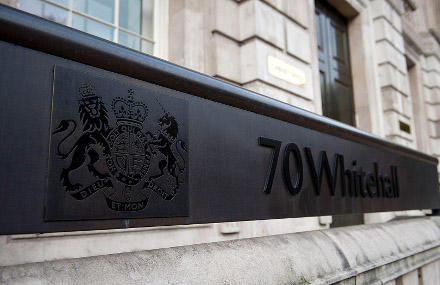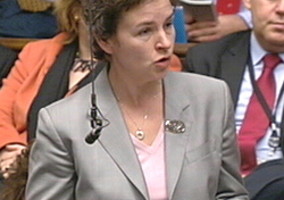The government has published new standards for grant agreements to replace the ‘anti-advocacy’ clause, which was proposed by the government earlier this year.
Charities had widely criticised the original proposal, warning that it could prevent organisations receiving public funding from providing evidence to select committees or feedback on how policy is affecting beneficiaries.
NCVO, Social Enterprise UK and Acevo have said that the new grant standards are a significant improvement.
A review of government grants was announced by the government in the wake of the collapse of Kids Company, which highlighted a lack of accountability around government grant giving in that instance.
The government will create a Grants Advice Panel to consider high risk grants. All departments must also introduce a “robust” grants approval process for grants of more than £100,000.
Grants must include terms of “eligible expenditure”, which means that in most cases funding cannot be used for lobbying, but activity such as giving evidence to select committees can be approved.
They will have “longer-term outcomes defined, wherever possible” and be subject to an annual review.
‘New agreement will protect taxpayers’ money’
There are around 2,000 grant schemes across government. The Cabinet Office grants register for 2014/15 shows that £132bn was spent on grant funding, with £9.7bn going to non-profit organisations.
Chris Skidmore, minister for the constitution, who led the grants review, said today’s announcement followed detailed consultation with the voluntary sector and research organisations.
“This government is committed to ensuring taxpayers get value for money for every penny they spend. The standards we are announcing today will make sure all government grants are awarded with greater transparency, sufficient scrutiny and more accountability,” he said.
Rob Wilson, minister for civil society, said: “The new grant standards announced today will not only increase the opportunity for charities to work with government through improved grant making practices, they will better protect the role of charities to speak out on behalf of their beneficiaries whilst ensuring taxpayers’ money is used as intended.”
‘Eligible expenditure’
In guidance published alongside the new grant standards the government said organisations receiving a grant could not use it for “paid for political activity” and that terms of grant agreements should always include a clause to exclude paid for lobbying.
It said the terms of the grant “must be sufficiently clear, to provide assurance that the grant is only used for the purposes for which it was awarded” and that “this will preclude activity such as paid for political lobbying, unless a specific requirement of the grant”.
Examples of activity that can be approved include giving evidence to select committees, attending meetings with ministers, responding to consultations and providing evidence-based policy recommendations.
Each department will be responsible for drafting agreements with recipients.
Grants Advice Panel
In guidance outlining the role of the Grants Advice Panel the Cabinet Office said that departments should refer grants to the panel if they are "high risk", "novel and contentious" or "undergoing a step change in sope or funding".
The panel is part of the Cabinet Office Fraud, Error, Debt and Grants team and will meet every two months. Its three aims are to reduce the cost of administering grants, reduce fraud and improve effectiveness.
Advice provided by the panel will be recorded on the GGIS (government grant information system) after it meets. The grant owner is not obliged to accept the advice but should explain its reasoning.
The panel membership includes experts from within government and other grant making experts covering the following fields:
- Commercial Models
- Public Body Reform
- Crown Commercial Service
- Legal
- State Aid
- Office for Civil Society
- Finance, Assurance and Controls
- Funding Systems and Measurement
- Fraud and Error
- HMT
- The Charity Commission
‘Potential to improve grantmaking’
Charity leaders said the new grant standards would help to improve the way the government funds charities.
Sir Stuart Etherington, chief executive of NCVO, said: “The original clause was counterproductive and would have meant grant-funded charities would be unable to provide crucial insights that improve legislation, regulation and public services.
“This fundamental flaw has been recognised by the government and its new guidance is crystal clear in saying that activities such as raising issues with ministers and civil servants, responding to consultations and contributing to the general policy debate are not only permitted but actively welcomed.
“The new standards also have the potential to improve grant-making across government, ensuring public money is fairly awarded and effectively spent.’
Asheem Singh, interim chief executive of Acevo, described the announcement as a “victory for common sense and free speech”.
But he said there remained concerns about the how the new standards are implemented.
“There is the potential for confusion between some of the provisions of eligible and ineligible expenditure. But we will continue to work with the government to monitor the implementation of the new guidelines and ensure that the voice of charity beneficiaries remains heard.”
Peter Holbrook, chief executive of Social Enterprise UK, said: “This is good news for the social enterprises that would have been affected by this clause. A number of social enterprises receive grants to support their work, but also want to ensure that they are using their experience on the ground to shape policy on behalf of the people and causes they work for.
“Today’s new grant standards mean that they will continue to be able to make this important contribution.”
Grant standards in full
1. All government grants require a named senior responsible owner with clearly defined responsibilities throughout the lifetime of the grant.
2. Departments must ensure they have a robust grants approval process to approve spend over £100,000, and that details of all current grant schemes and awards are available on the Government Grants Information System.
3. New government grants, including those that are high risk, novel and contentious, as well as those undergoing a step change in scope or funding, should be considered for submission to the New Grants Advice Panel for scrutiny and advice from subject experts.
4. A robust business case, proportionate to the level of expenditure and risk, must be developed for all government grants. This will be scrutinised and approved in stages, as part of grants approval process, in line with the guidance in Managing Public Money.
5. Government grants should be competed by default; exceptions may be approved where competition would not be appropriate. Detailed supporting evidence for any direct award decision must be provided in the approved business case.
6. All government grants must be awarded through robust grant agreements, proportionate to the value of the grant and which reflect the minimum standards for government grants, in line with guidance in Managing Public Money. All government grant agreements will include terms of eligible expenditure.
7. All government grants will be subject to timely and proportionate due diligence and fraud risk assessment.
8. All government grants will have outputs agreed and longer-term outcomes defined, wherever possible, to enable active performance management, including regular reviews and adjustments where deemed necessary.
9. All government grants will be reviewed annually at a minimum with a focus on financial reconciliation, taking into account delivery across the period, resulting in a decision to continue, discontinue or amend funding.
10. All those involved in the development and administration of grants must undertake core training in grant management best practice.
All the guidance to accompany the new grant standards can be found here.
Related articles












